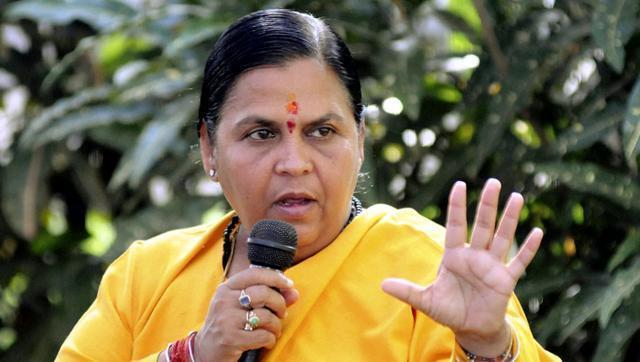
BJP leader and former Madhya Pradesh chief minister Uma Bharti, while addressing an election rally in UP, has said rapists should be tortured until they beg for forgiveness from their victims, as had happened when she was heading the government.
The statement is expected to rile several human rights and men's rights groups, who will point to false cases of rape filed against people, and how this kind of treatment could be a violation of human rights.
Also read: Educated woman having sex multiple times after being promised marriage is not rape, rules Kerala HC
Law and order in UP
The law-and-order situation in the state has been a big issue in the run-up to the UP elections — whose first phase is on Saturday, February 11. Even Prime Minister Narendra Modi has invoked it in his election speeches, telling people that the BJP's fight in UP was against "the corrupt, the land-grabbing mafia, and those who shelter criminals like rapists and murderers."
His reference was to the Samajwadi Party (SP) and the Bahujan Samaj Party (BSP), both of which have been known to field people with criminal cases against them. Recently, BSP chief Mayawati even re-inducted a former mafia boss in the party. It may also be recalled at this time that former SP chief had said of rapists that "boys make mistakes."
What Uma Bharti said
It was this law and order situation — and the manner in which crimes like rape are treated in the state — that Uma Bharti was talking of when she made some possibly inflammatory statements on Thursday. She said: "During my rule, a rapist was tortured in a police station and the victim was asked to watch so she could get peace."
Then, referring to a mother-daughter duo being raped in August last year, she added: "The rapists should be hung upside down and beaten till their skin comes off. Salt and chilly should be rubbed on their wounds. That is what I had got done when I was chief minister [of Madhya Pradesh]."
Possible human rights violation
While Uma Bharti's statements may have had their origins in the suffering of rape survivors across the country, they may have also shed some light on human rights violations that could have gone on during her rule in MP. After all, no person can be called a "rapist" based on allegations alone, and can only be referred to by that name after he has been convicted of rape in a court of law.
Men's right activists may also be riled by the statement, and cite statistics and cases where men have been falsely accused of rape. They will also point to how such men have suffered — sometimes for years at an end — as a result of the accusations, and have had to spend valuable time and money to prove themselves innocent, but the taint remained on them in spite of the court acquitting them of all charges.

















